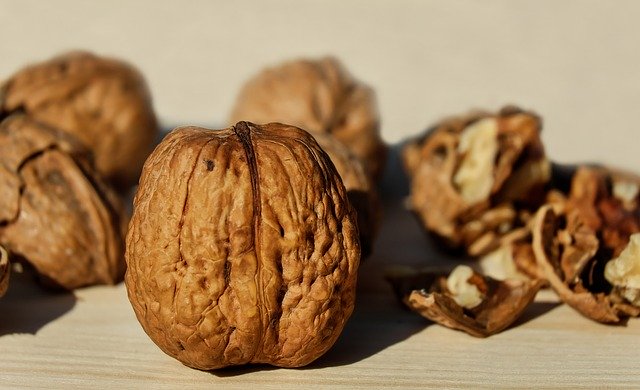A new study published in the Journal of Nutrition discovers that walnuts may benefit the gut microbiota and the heart.
Our digestive system is colonized by a complex ecosystem of more than 100 trillion microorganisms, both good and bad, commonly referred to as the gut microbiota. The gut microbiota is critical for digesting food, metabolizing foreign substances and drugs, protecting against microbial pathogens, and regulating the immune system. More recently the gut microbiota has also been linked to reducing cardiovascular risk.
Our gut microbiota ecosystem responds to the food we eat. A diet rich in fruits, vegetables, and fibers promotes a diverse ecosystem with more good microorganisms than bad ones. Unhealthy food choices can disrupt this balance.
Walnuts are rich in healthy polyunsaturated fats, including omega-3 fatty acids such as alpha-linolenic acid (ALA), which promotes cardiometabolic benefits. They also contain bioactive compounds such as tannins and fiber that are metabolized by the gut microbiota.
To assess the health benefits of walnuts, researchers recruited 42 overweight or obese individuals between the ages of 30 and 65 at risk for cardiovascular disease. The participants were placed on an average Western diet for two weeks before the study and then randomly assigned to one of three study diets, all of which included less saturated or unhealthy fat than the Western diet.
Only the first diet included eating whole walnuts. The second diet included a vegetable oil blend with the same amount of ALA and polyunsaturated fatty acids as walnuts. A vegetable oil blend replacing ALA with oleic acid (a monounsaturated fatty acid) made up the third diet. The diet was followed for six weeks with a break every two weeks. Researchers analyzed fecal samples 72 hours before the end of the average Western diet and 72 hours before the end of each diet period for any changes in bacteria composition and abundance.
They observed that nine kinds of bacteria (or taxa) were enriched following the walnut diet, relative to the average Western diet. Four taxa were enriched following the walnut fatty acid-matched diet or the second diet and only three taxa were enriched following the oleic acid diet, or the third diet. For example, Roseburia, previously identified as good bacteria that protects the gut lining was enriched following the first and second diet, suggesting that polyunsaturated fat including ALA may benefit the gut environment. Other bacteria such as Gordonibacter only increased following the walnut diet, suggesting that walnut bioactive compounds and fibers may also play an important role in altering the gut environment.
The researchers discovered that only the walnut diet resulted in significant associations between enriched gut bacteria and cardiovascular disease risk factors. For example, greater numbers of Lachnospiraceae were associated with reductions in blood pressure, total cholesterol, and non-HDL cholesterol. Increased abundance of Eubacterium eligens was also associated with reduced cardiovascular disease risk factors. These findings contribute to the growing evidence that what we eat affects our gut health and that our gut health may be linked to heart health. The underlying mechanism or how the gut microbiota affects cardiovascular risk remains unclear.
Written by Maria-Elena Bernal
References:
- Tindall, M, A., J, C., Petersen, Kristina S, K.-E., Lamendella, & Regina. (2019, December 18). Walnuts and Vegetable Oils Containing Oleic Acid Differentially Affect the Gut Microbiota and Associations with Cardiovascular Risk Factors: Follow-up of a Randomized, Controlled, Feeding Trial in Adults at Risk for Cardiovascular Disease. Retrieved from https://academic.oup.com/jn/advance-article/doi/10.1093/jn/nxz289/5680186
- Walnuts may be good for the gut and help promote heart health. Retrieved from https://www.eurekalert.org/pub_releases/2020-01/ps-wmb011620.php
- Rinninella, E., Raoul, P., Cintoni, M., Franceschi, F., Miggiano, G. A. D., Gasbarrini, A., & Mele, M. C. (2019, January 10). What is the Healthy Gut Microbiota Composition? A Changing Ecosystem across Age, Environment, Diet, and Diseases. Retrieved from https://www.ncbi.nlm.nih.gov/pmc/articles/PMC6351938/
- Jandhyala, S. M., Talukdar, R., Subramanyam, C., Vuyyuru, H., Sasikala, M., & Nageshwar Reddy, D. (2015, August 7). Role of the normal gut microbiota. Retrieved from https://www.ncbi.nlm.nih.gov/pmc/articles/PMC4528021/#!po=30.0000
Image by Couleur from Pixabay



